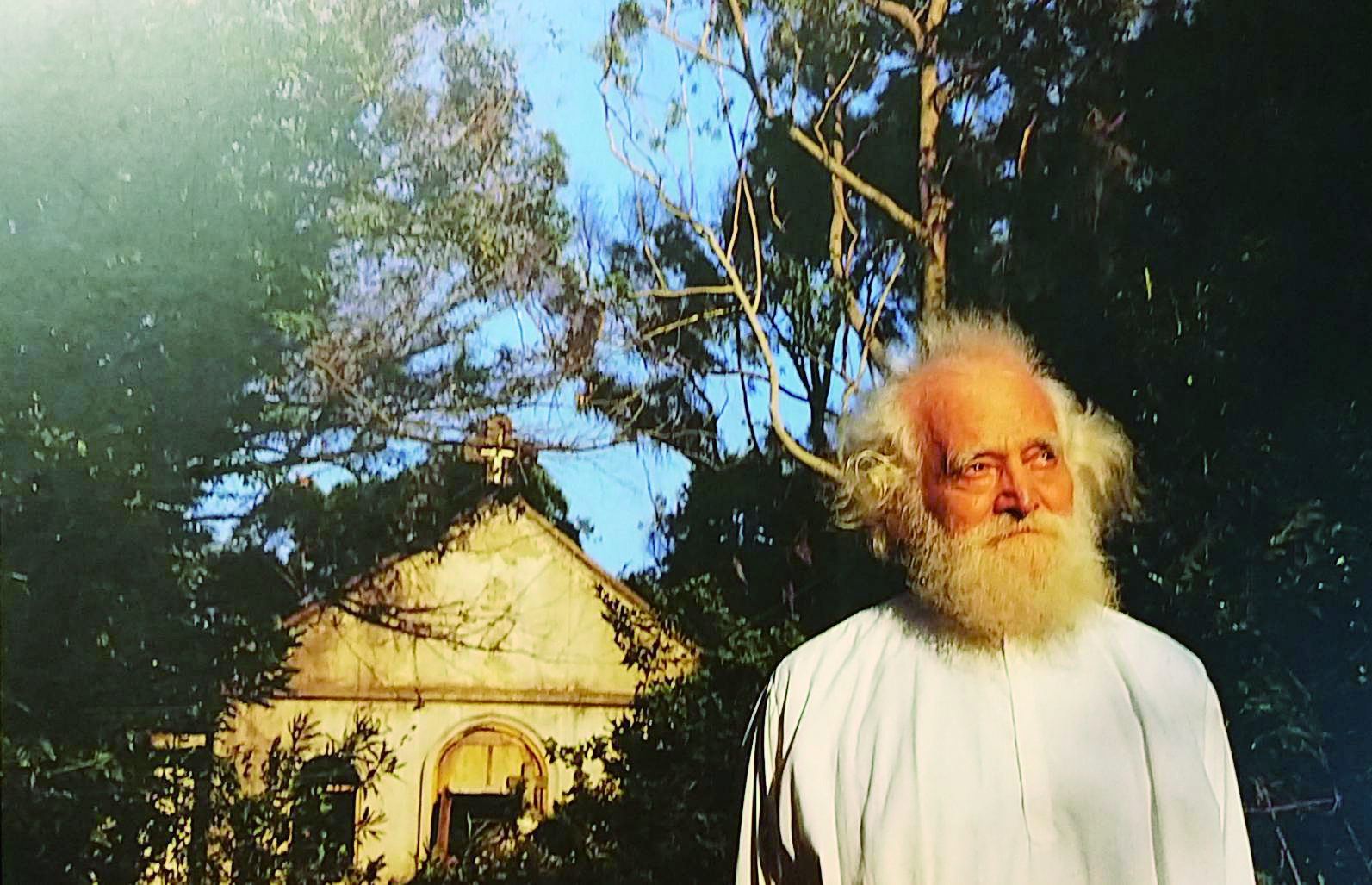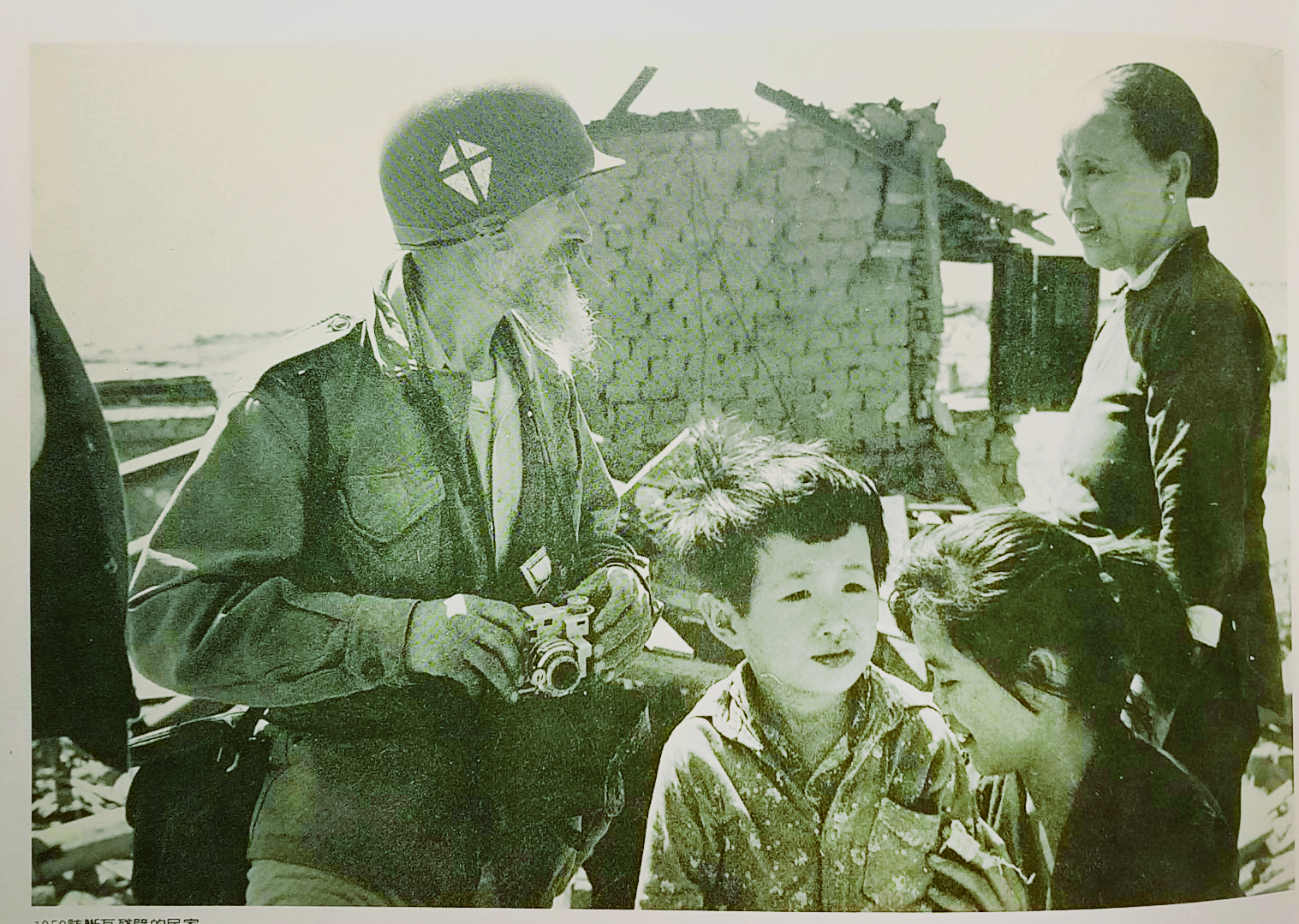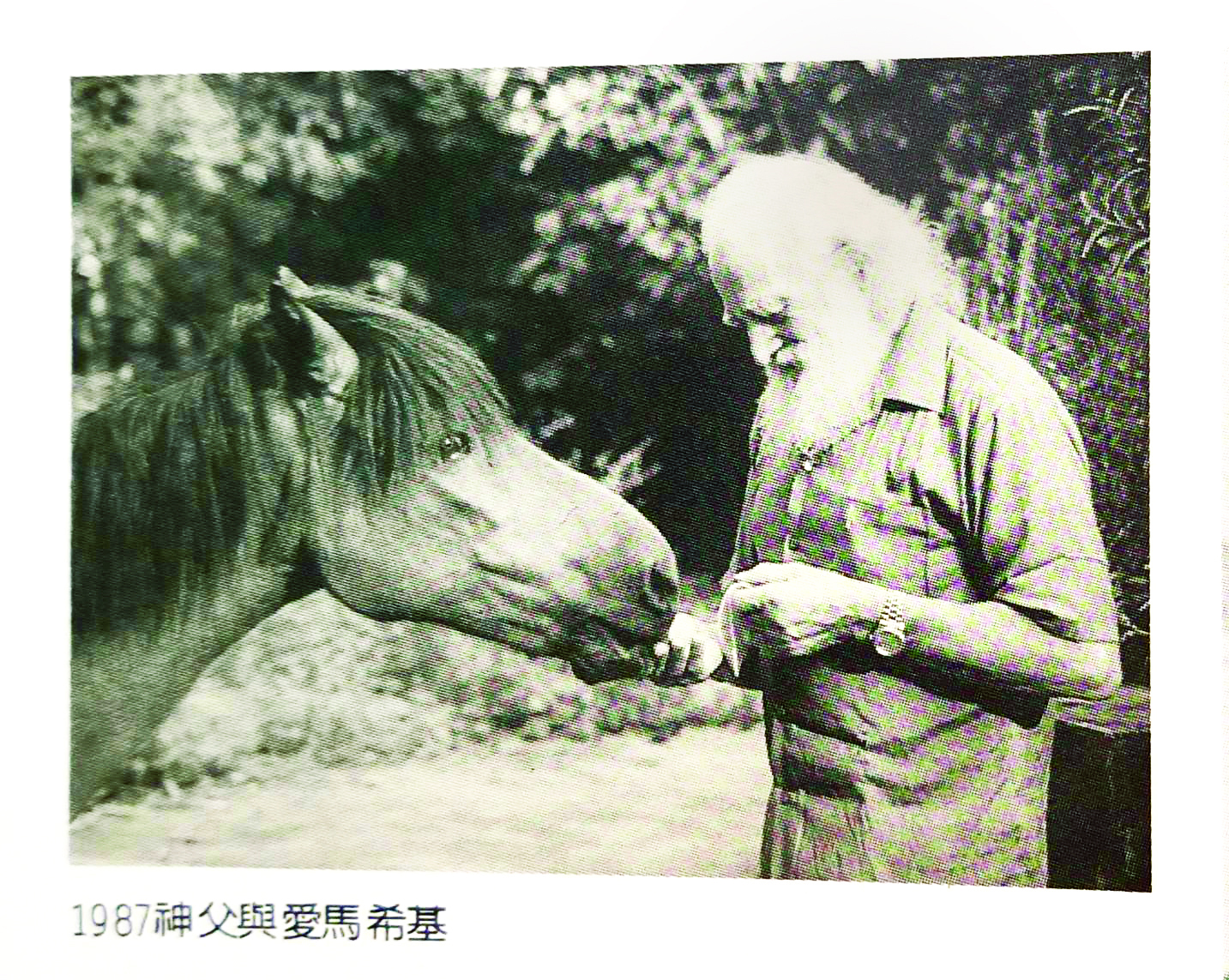Santa in Kinmen - The Story of Fr. Bernard M. Druetto【Parent-Child Reading Guide】
點閱次數:1836“Santa Claus Comes to Kinmen”
On Christmas Eve, 1954, Fr. Bernard Druetto (1909–1994) arrived inthe militarized islands of Kinmen. He was there to escort and distribute a batch of US Aid materials, prompting the local newspaperto print the headline “Santa Claus Comes to Kinmen.” Father Bernard thus settled in Kinmen. For the next fortyyears, with his medical background,he offered the islanders and the stationed troops free healthcare, and took in children with learning disabilities. The locals called him the Western Bodhisattva in gratitude for his tireless acts of good.
 A Medical Missionary
A Medical Missionary
Bernard Druetto was born in Marseille, France, on March 28, 1909, and entered the monastery at age 11. As a novice, he was much inspired by Jesus’s command to heal the sick, help the poor, and “go into all the world and preach the gospel to all creation” (Mark 16:15). He joined the Franciscan Order in Turin, Italy, after graduating from the monastery, and was sent to Rome for seven years of rigorous theological and medical training.
In November 1931, Bernard Druetto came to Changsha in the Chinese province of Hunan. He was ordained the next year in May at the age of 23. As head of the Catholic hospital in Changsha, Father Bernard often rode about on his horse to see patients. Even the appearance of tigers did not deter him. The Japanese invasion of China started in 1937. On one of his house calls, Father Bernard was arrested by the invading soldiers. Three days later, the soldiers released and granted him a pass on the condition that he treat the Japanese first from then on. Father Bernard declined, and escaped to the mountains to tend the Chinese guerrillas until 1945, when the war ended.
Back in Changsha, he quit the post at the hospital, and went to the neighboring prefecture of Liuyang. There he fundraised and founded a new hospital providing 24-hour free service. Alas, as soon as the atheistic Communists took over mainland China, foreign clergy began to be put under surveillance. They were asked to account for their whereabouts at all times, and were often summoned to ‘talks’ with the Party members.
Imprisoned on False Charges
In March 1951, the Chinese Communists arrested Father Bernard, accusing him of being an ‘imperialist’ and a spy. The show trial lasted a week and sentenced him to death. In custody, he was thoroughly tortured and once given nothing but water for 23 days straight. He contracted dysentery and beriberi, had a tumor in his stomach, and lost all his teeth to beating. A healthy man of almost 85kilos before incarceration, Father Bernard weighed little more than thirty after eight months of torment. The only thing that kept him alive were prayers. “I used all my time to pray,” he later recalled. “I prayed for neither life nor death, but that everything is according to God’s will.”
Come Octoberthat year, Father Bernard was finally taken to a Maoist ‘struggle session’ to be publicly denounced. To the Party members’ surprise, the crowd present called for his release instead. The people of Liuyang organized a petition numbering tens of thousands of signatures; there were even about a dozen individuals saying the authorities could take them in Father Bernard’s stead. The Party feigned “listening to the People” by retracting Father Bernard’s sentence, but expelled him forever from China. The dozen brave men willing to die for him were also executed. The turn of events weighed heavy on Father Bernard’s mind ever since.
In Hong Kong, where he received treatment for two months and had recovered somewhat, Father Bernard heard that there were Chinese refugees trapped on Phú Quốc Island at the southern tip of French Indochina. The refugees, led by General Huang Chieh, were mostly Nationalist soldiers and their families who retreated from the province of Kwangsi toward the end of the Chinese Civil War (1945–1949). Father Bernard responded to the refugees’ appeal and went to look after them. The work was done in 1953, when the trapped troops and Father Bernard were evacuated to Taiwan.
The Place Closest to Hunan
Father Bernard was in Kinmen during the Christmastide of 1954 on behalf of Cathwel Service, to simply play the role of a Santa Claus. Upon seeing the war‐ravaged townscape, however, he decided to stay to help the people there.
There was no professional doctor on Kinmen at the time. The military hospital, for the most part,was out of bounds to the islanders. Herbal medicine and folk healing methods were their only resort. Thus Father Bernard started seeing patients out of a tent set up on a parcel of marshland borrowed from the military. The tent evolved to a domed aluminum-plated house. A chapel occupied half of the building, while the other half served as patients’ quarters. Father Bernard’s clinic featured free treatment, free medicine, and as much love as one could get. Soon it became well-known among the locals and the stationed troops, and Father Bernard could often be seen with his physician’s kit on a motorcycle or a jeep en route to house visits.

The Shelling That Never Stopped
On August 23, 1958, the Chinese Communists’ People’s Liberation Army suddenly began firing artillery at Kinmen. Casualty over the first few days was high. Father Bernard, who happened to be in US-administered Ryukyu (Okinawa) procuring medical supplies, rushed back to Kinmen aboard a naval vessel. Under the bombardment, however, the ship twice failed to draw to the shore. An anxious Father Bernard took his first aid kit, jumped into the sea, swam ashore, and right away set about saving the wounded. He carried on even after being hit by shrapnel, earning him the first presidential citation awarded to a foreign civilian by the Taiwanese government. The American officers who participatedin the defense of the islands testified to Father Bernard’s valor.
The battle would be known as the Second Taiwan Strait Crisis. The Communists exerted force at first and attempted to blockade Kinmen, but resorted to ‘symbolic’ shelling come October; that is, they fired little, strictly on odd-numbered days, and sometimes dropped only propaganda. The disquieting limbo lasted twenty years until 1979. Amid the continual explosions, Father Bernard laid the bricks and roof tiles of a concrete church in the eastern half of Kinmen Island. It was completed in 1962 along with the Mercy House, which was a hospital also sheltering disabled children. In the following years, Father Bernard built, with his own hands, another church and a nursery in the western half of the island. The second church, devoted to the Sacred Heart, stands to this day.
To Rest Is to Stand; To Sleep Is to Sit
The long-standing curfew during Kinmen’s militarized years did not at all hinder Father Bernard from performing his duty. He often skipped meals and sleep, wearing colleagues out with astounding stamina. “To rest is to stand; to sleep is to sit” was his motto. “The Chinese Communists have done me good,” he once said during an interview with a reporter from Boston. “Thanks to them, I can only have one meal a day—very time-saving. There is too much work and too little time. Two to five hours of sleep is enough for me.” To the patients, on the other hand, Father Bernard was as kind as one could be. In addition to free healthcare, in-patients and family could enjoy free meals at the Mercy House. Vegetables and fruits grown in his garden were available for everyone, and the man himself was always the center of the local children’s universe.
Father Bernard kept animals in the garden, too. Their feeding hours might have been the only downtime that Father Bernard allowed himself.

Overcoming Ailment with Faith
Father Bernard’s health was in fact permanently damaged during his imprisonment. He also suffered a fall in 1983 while repairing the roof of one of his churches. He broke a rib and bent his right leg, which already had to be strengthened with a steel bar in 1971. Only through the coercion of his friends did Father Bernard agree to have surgery in Taiwan. The prognosis was three months of treatment and another three months of physical therapy, but he checked himself out of the hospital (on a crutch) after just three weeks. A month later, he managed to ride eighty kilometers on a motorcycle to meet an acquaintance. Not long after his return to Kinmen, the crutch fell into disuse.
The Un-Rebuilt Church
The firstchurch that Father Bernard built was destroyed in an electrical fire in July 1987. Understandably upset, he nonetheless produced an updated design and fundraised for the rebuilding project. On January 27, 1994, Father Bernard hit an excavator parked on the roadside. It was getting dark, and he probably did not notice the vehicle. He died on the 29th of heart failure. He was 85, and the rebuilding never came to be. Father Bernard was more than a Santa to the people of Kinmen. He was a special Christmas present for them, and his words and deeds would forever be in their hearts.